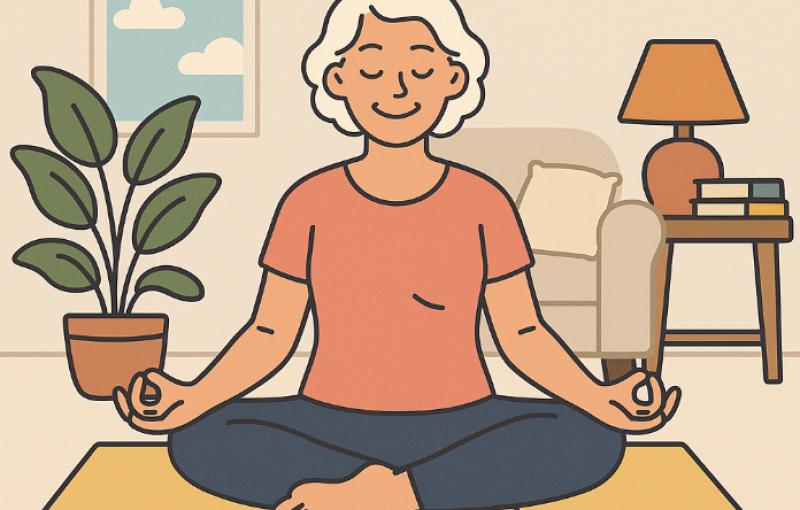
Is Religion Dying? Not Everywhere—and Definitely Not for Everyone
by Jon Scaccia May 1, 2025You’re sipping your coffee, scrolling headlines. One says religion is on the decline. Another talks about the rise of the “nones.” Maybe you’ve even noticed it in your own life—fewer people at church, less talk of faith at school or work.
But hold up. What if the global story of religion isn’t that it’s disappearing—but that it looks radically different depending on where you are?
A massive new study—like, 200,000-people massive—just dove into this question. Researchers from the Global Flourishing Study surveyed people in 22 countries across every continent except Antarctica. They asked one deceptively simple question:
“Are your religious beliefs and practices what really lie behind your whole approach to life?”
And the answers? They’re not what you’d expect.
Indonesia: 94%. Japan: 7%.
Let’s cut to the chase. In Indonesia, 94% of people said yes—religion is the guiding force in their life. In Nigeria and Egypt, the number was nearly as high. But in Japan? Only 7% agreed.
That’s an 87-point gap.
What gives? Is Japan just done with religion? Are Indonesians more spiritual? The truth is more complicated—and way more interesting.
What Even Is Religion? Depends Who You Ask
Here’s the twist: in Japan, lots of people still burn incense, talk to ancestors, and celebrate religious festivals. But ask them if they’re “religious,” and they’ll say no.
Why? In Japanese and other East Asian languages, the word “religion” often has baggage—think missionaries, Western ideas, strict doctrines. So people might live deeply spiritual lives, yet not check the “yes” box on a religion survey.
In other words, measuring religious centrality is kind of like measuring love—you better be real careful how you ask the question.
Religious or Not, People Are Still Guided by Belief
One of the study’s coolest findings? Even folks who never go to religious services—who check “atheist” or “no religion”—sometimes still say that religious ideas shape their life.
In Nigeria, 71% of people who never attend religious services still say religion is central to their life. That’s more than most religious people in Germany, Sweden, or Australia.
So maybe the issue isn’t belief—it’s belonging.
Age, Gender, and Grandma’s Influence
Want to know who’s more likely to say religion is central to their life?
- Older people.
In most countries, the older you are, the more likely you are to say faith shapes your worldview. But not always—Israel was the wild card, where younger folks led in religious centrality. - Women.
Across eleven countries, women were more likely than men to say religion was central. But the UK was the exception—there, men were slightly more religious. - Married or widowed folks.
They showed the highest religious centrality. People in domestic partnerships? The lowest. Maybe it’s stability. Maybe it’s shared traditions. Or maybe it’s that Grandma’s influence never fades.
Education: Faith Fades… or Deepens?
Think the more educated you are, the less religious you become? Think again.
In places like Kenya and India, higher education correlated with lower religious centrality. But in the U.S., the U.K., and the Philippines, more education actually meant more religious commitment.
The takeaway? Religion and education aren’t enemies. Their relationship changes depending on where you live, what you learn, and how your society defines wisdom.
Why Does This Matter?
Because religion isn’t just about what happens on Sundays.
People who say religion is central to their life tend to report:
✅ Better mental health
✅ More charitable giving
✅ Stronger sense of purpose
And if you’re trying to improve health, education, or social services in a given country, you can’t afford to ignore faith—it’s often woven into the very fabric of everyday decision-making.
A Global Story in the Making
This study is just the first chapter. Researchers are tracking these same 200,000 people over the next few years to answer a giant question:
Does being guided by religion actually cause better outcomes in life?
Future waves of data will explore whether faith influences happiness, health, relationships, and character. And we might finally begin to untangle which comes first—flourishing or faith.
Let’s Explore Together
This study challenges our assumptions, pokes holes in tired theories, and reminds us that the story of belief is anything but simple.
🌍 How do you see religion shaping lives where you live?
🤔 What would you ask in a global survey about belief?
💡 What’s the most surprising thing you learned from this post?
Let us know in the comments—or share this with someone who loves thinking big.
Stay Updated or Risk Falling Behind
Science is evolving rapidly—and in today’s chaotic information landscape, falling behind means losing ground to misinformation. This Week in Science delivers the most essential discoveries, controversies, and breakthroughs directly to your inbox every week—for free.
Designed for educators and science-savvy citizens, it’s your shield against bad data and outdated thinking.
Act now—subscribe today and stay ahead of the curve.
🔗 Liked this blog? Share it! Your referrals help defend truth and spread scientific insight when it matters most.
Leave a Reply